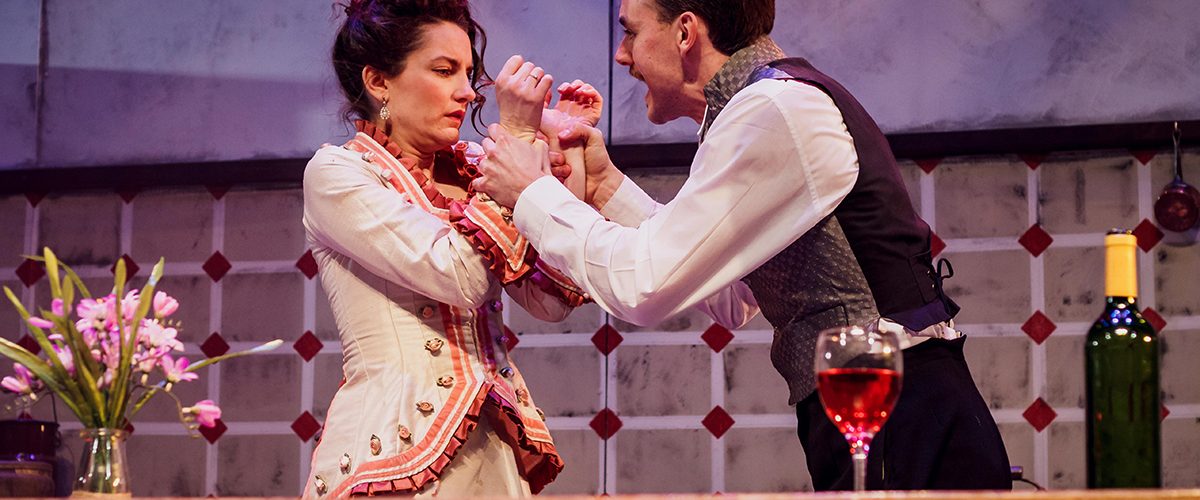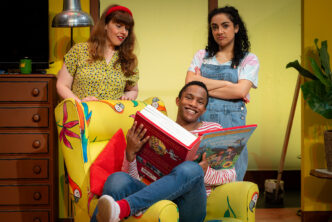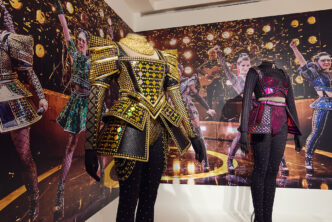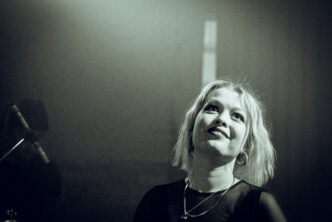Jake Murray spent 7 years as a theatre director with The Royal Exchange Theatre, Manchester where his father, the late Braham Murray was a founding artistic director. He has since co-founded Elysium Theatre, currently company in residence at the Assembly Rooms Durham. Quays Life caught-up with Jake as he returns to Manchester with a new production of August Strindberg’s 1888 classic, Miss Julie at Hope Mill Theatre.
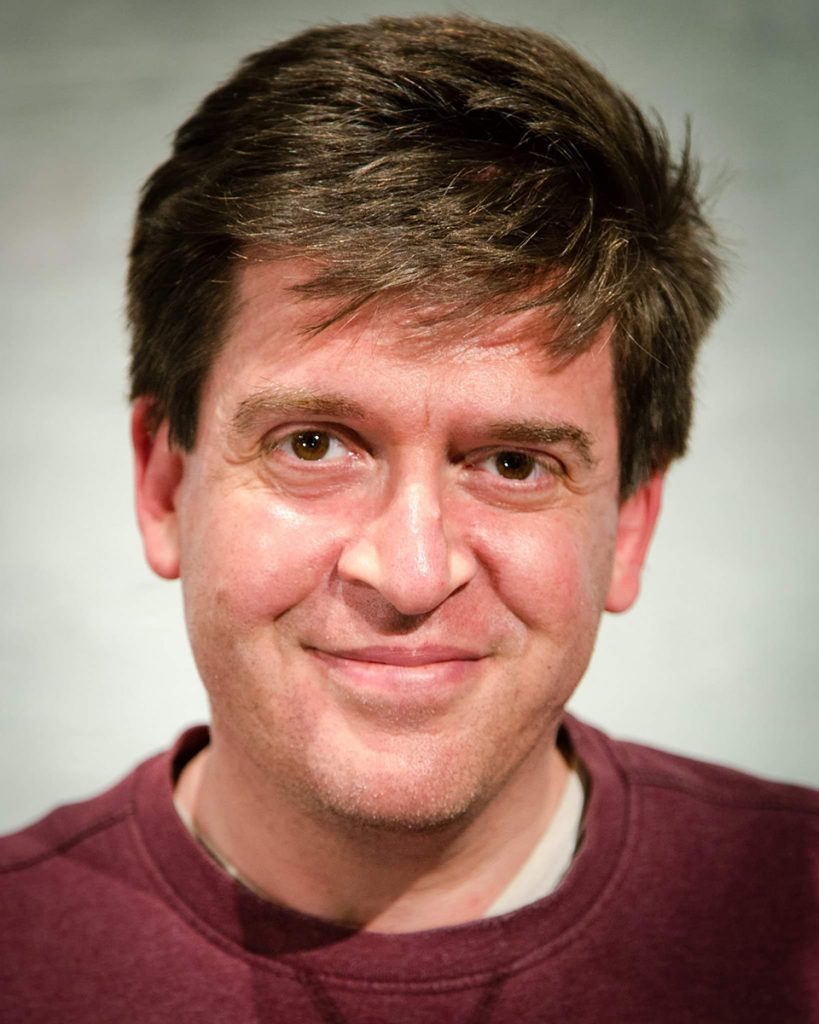
What is Miss Julie about?
Miss Julie is about a tragic sexual encounter between an aristocratic heiress and her father’s valet during the night of Midsummer Eve celebrations. The two are irresistibly drawn together, but bitter divisions of class and gender rip them apart. It’s a genuine tragedy of two people undone by the contradictions under which they live.
What attracted you to this play?
I’ve been a Strindberg nut since I first read his plays when I was 16. I’ve always been drawn to his passion, his intensity and the powerful energies in his plays. Even when he seemed too dark the desire to wrestle with him, to argue with him, to understand what he was about drew me to his words. His plays are often bitter and painful, but they always have a tragic humanity which you can’t turn your face away from. This is the sixth play of his I have done. For many years it was the one I least wanted to do because it seemed the most conventional, the one most often done. But now it feels like a true masterpiece, the one in which his vision of men and women and the forces that can drive them apart against their will is most balanced. It’s also one of the best explorations of class and gender that has been written, and still packs a mighty punch.
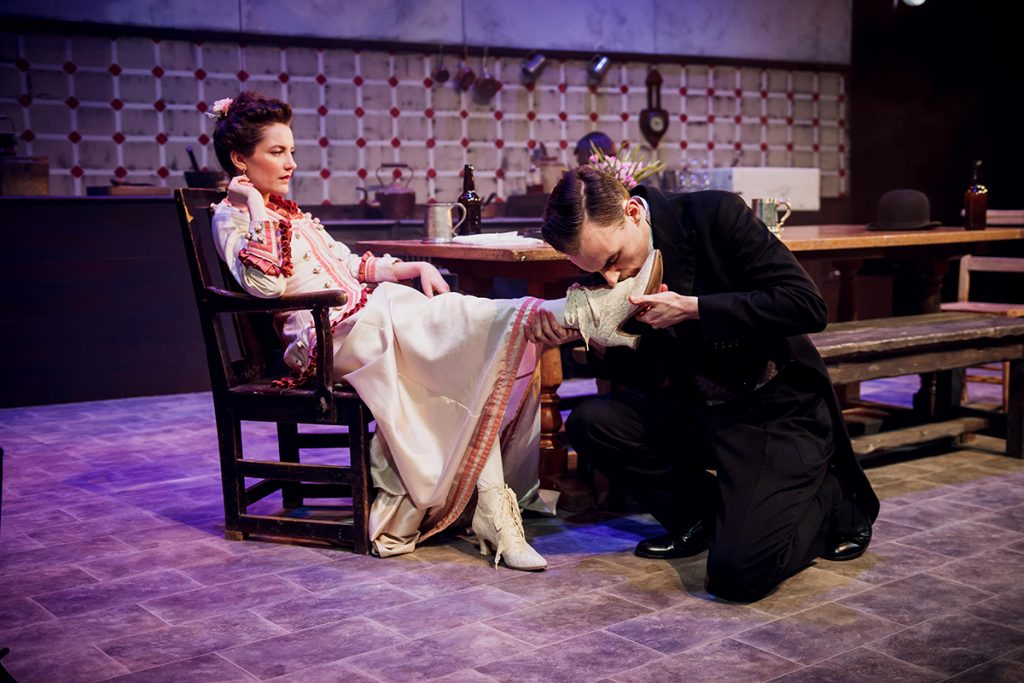
You must have watched many of your dad’s productions. What was it about his 1995 production of Miss Julie that inspired you to direct the play yourself one day?
My dad’s production didn’t inspire me to direct Miss Julie! We always used to argue about Strindberg. My father preferred Ibsen. It was a production of Ibsen’s Brand that inspired him to be a theatre director, and two of the senior directors who founded the Royal Exchange with him, Michael Elliott and Caspar Wrede had made their names with iconic productions of Ibsen. I admired Ibsen but much preferred Strindberg, whose intensity about life seemed to match my own. Also, his willingness to face human darkness but not to succumb to it seemed more honest and brave to me than Ibsen, whose characters are often motivated by fear and guilt. My father’s production was very elegant and beautiful, but it wasn’t the Miss Julie I felt I knew. Funnily enough the production of his that was closest to Strindberg for me was his production of the world premiere of Your Home In The West by Rod Wooden, which is still one of my favourite of my father’s for me. That one had the unflinching honesty and tragic humanity of Strindberg as I saw it.
Have you brought any aspects of your dad’s direction into this production?
No, I think they are very different, but there is a humanist spirit to both our productions which I think is similar, and we have both used the same translation, that of Michael Meyer, who was a mentor to us both (although mine is slightly adapted for a British setting). For both of us, Michael’s translations of Ibsen and Strindberg are still the best.
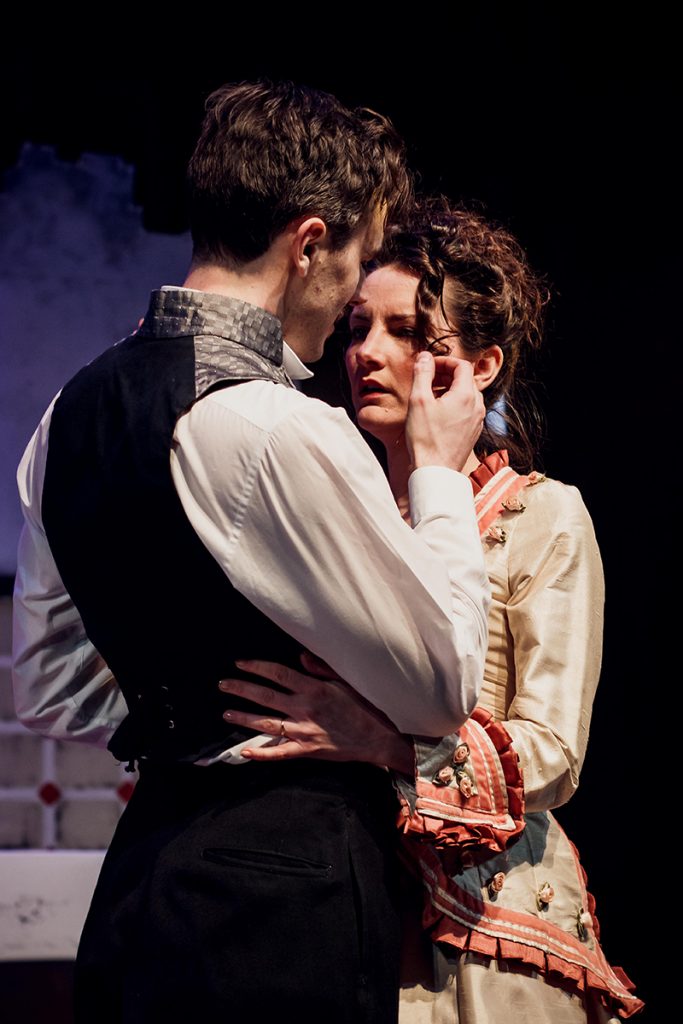
What do you think your dad would say about your production and about Hope Mill theatre?
He was always very proud of the work I did, especially in the later years of his life. Before then there was always an element of pride and competition when I directed something, probably for both of us, but after he left the Royal Exchange he underwent a sea change and was profoundly supportive of what I did. I remember him saying after the Strindbergs I did in 2016 at the Jermyn St Theatre: ‘You have to go on’. And I am. And I think he would be delighted to know that were he alive today.
How was it developing your own artistic voice when growing-up in a theatrical household?
It was always very double sided. My parents were both very strong creative voices, (my mother, Johanna Bryant, was my father’s chief theatre designer) with very passionate opinions about how theatre and art should work. They were always very encouraging and always fostered my directing, but it was also often very hard to work out who I was and what my own voice was within that. We shared so much in terms of vision, but the theatre my parents grew up with was completely different to the one I was part of. They were part of the post-war Sixties generation who rode a wave of the most incredible creativity in the Arts across the country. Every major city had a flagship theatre which did an extraordinary mix of international classics and large-scale new plays all the year round. My generation grew up in the shadow of that. Theatres had been closing for decades since Arts funding was started being cut by the Thatcher government. Large-scale plays, classics, were not accessible to us because no-one could afford to do them. Where my parents’ careers started in the West End and in regional flagships, my generation was struggling in fringe venues above pubs. It’s even worse for the generation below me, which has even less of a ladder available to it. What this meant was that my parents were more used to macrocosmic theatre, theatre in large spaces, whereas I thrived more in smaller ones where the acting could be more intimate.
In truth, I was only truly able to find my own voice by leaving the Royal Exchange and striking out on my own. I went to India, came back and made a conscious decision to work with children and in drama schools. Ironically it was working at drama schools, where I finally got to direct all the playwrights I had always wanted to direct – Ibsen, Chekhov, Lorca, Brecht, the Greeks – that I truly learnt how to be a director and find my voice. Now I have my own company I feel I can really be myself in that way. I am in the same tradition as my parents, motivated by a kind of mystical humanism (as it was once called in an article about the Royal Exchange), but my voice is my own now.
What was the best piece of advice he ever gave you and did you welcome it at the time?
He gave me a lot of advice, so it’s hard to single out one thing. My brother and I grew up learning about theatre and world culture as children onwards. When everyone else was listening to pop music, which we were too, we were watching world cinema, reading world literature, seeing world theatre. We grew up having big philosophical discussions, so our whole upbringing was, in a sense, a piece of advice.
I suppose if I were to single something out it was a something he said to me when I was directing my first Shakespeare, ‘The Winter’s Tale’, at university. He said: ‘Shakespeare was a genius, so you have to lift yourself up to him, not drag him down to you’. What he meant by that was that the still fashionable idea that Shakespeare. and indeed any great classical playwright, was fair game to cut and paste and tear apart according to the director’s whim, or to serve an -ism, was a mistake; that great theatre stretched you and took you to places you wouldn’t normally go to, so you had to raise your game.
He was saying that the director’s job was to strive to give expression to thoughts and feelings that were greater than his or her own, to truly immerse themselves in the text so as to serve it, not in a dull, reverential way, but a passionate way that brought it to life. It was a profoundly humanist vision and it’s one I share with him utterly.
As one of the founding artistic directors of the Royal Exchange your dad left a great theatrical legacy in Manchester. If you could go back and say one thing to him about his work what would it be?
I would say to him that at his best he created two or three of the greatest pieces of theatre I ever saw – theatre that affected me profoundly as a young man, shaped me as an artist and inspired me as a human being. I would say that at his best he stood for something that the world needs, a commitment to great art and its power to change the world and point to a better life.
Like everyone he was human, he had failings, he could be comedic in his shifts from commitment to these high ideals and more crude attempts at success or status, but as his best he really did put his life at the service of something profound, important and inspirational, and that is why to this day he is fondly remembered, respected and admired even by people who fell out with him. It’s not easy to stand for something, but he did.
‘Don’t you know it’s dangerous to play with fire?’ is a famous line from Miss Julie. What’s the most dangerous thing you’ve ever done? Looking back over your life have you ever metaphorically played with fire?
Oh blimey! I’m tempted to say ‘danced through a field of corn’ just for laughs. I suppose the most dangerous thing I ever did happened when I was 37. I quit the Royal Exchange and left behind everything, my job, my life, to go to India. I barely had a plan, I just went, I had no idea what I would do when I got back, I didn’t even know if I wanted to direct any more. The future seemed like a black hole. All I knew was that I had to get away. I landed with nothing more than a back pack on my back in what was probably the most alien and unfamiliar environment I could have imagined. But it was the best thing I could have done. The experience was transformative. Sometimes the biggest risks you take gives you the greatest reward.
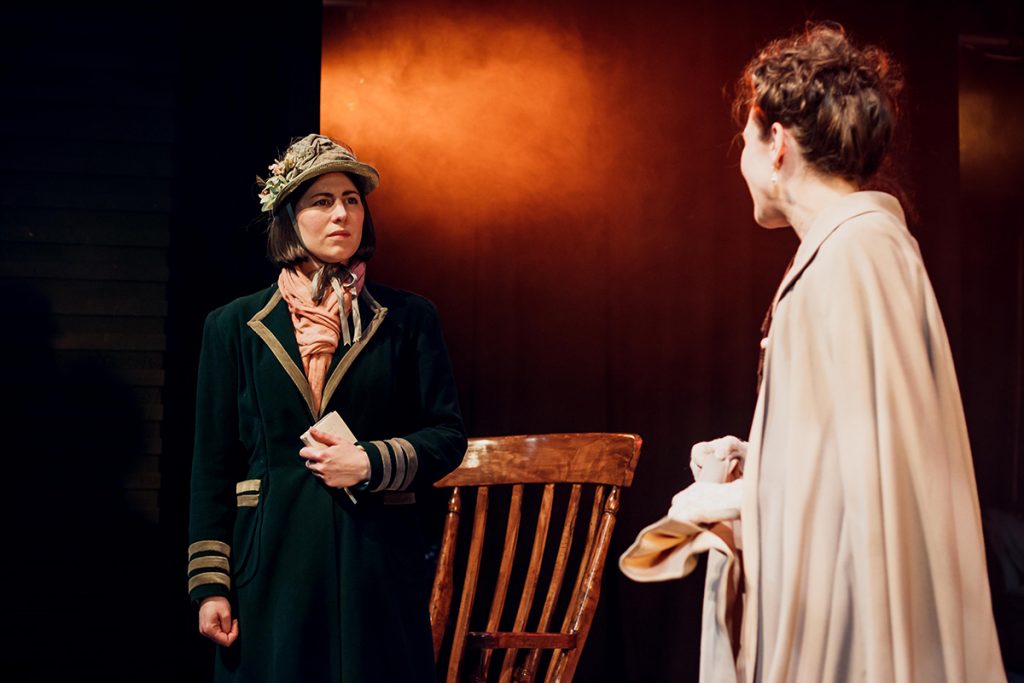
What do you think a modern audience will take from the play?
I think they will be surprised that a play written over 100 years ago can be so compelling about issues of class and gender that remain with us today. When you watch it, you keep having to remind yourself that Miss Julie was written before Oscar Wilde, George Bernard Shaw and J M Barrie, not just because of its themes but also its language. Its frankness, its honesty, its openness all seem to date it as a contemporary play. As the lights come up you think you are seeing a period piece, but very quickly you are drawn in to something utterly modern. We haven’t updated the action, nor given it a political context that may favour one of the characters or suggest change is on its way, we’re giving you the play unadorned and without illusion. Above all its as gripping as a thriller, or so we found from our North East audiences. We hope everyone enjoys it and takes away something powerful!
What is it like directing back in Manchester?
It’s a joy directing back in Manchester, although sometimes I do feel a little disloyal to my adopted home in the North East! I grew up in Manchester between the ages of 6 and 21 and worked there for seven years between 2001 and 2008 and so I have powerful connections to the place. It is amazing to see how much its grown. When I was six-years-old there was the Contact Theatre, The Library Theatre and the newly-opened Royal Exchange. Now there is a whole plethora of theatres.
When I left Manchester in 2008 I said to my Manchester actor friends “What Manchester needs is a fringe scene”. Lo and behold, a decade on, there is a thriving fringe scene with amazing work going on that matches the best on offer anywhere else in the country. I’ve had the pleasure of directing at 53two (Days Of Wine And Roses), T2 at HOME and am about to work at Hope Mill. I’ve also been able to work for Manchester-based Play With Fire theatre company on their production of The Effect at the Oldham Coliseum. It’s fantastic to be connected to be working in this grassroots way in Manchester.
The creative energy here is incredible, chock full of passionate writers, actors, directors and producers. I want to export that energy to the North East and make it just as vibrant. There’s no doubt that the desire is there!
Elysium Theatre Company and Queen’s Hall Arts Centre, Hexham present Miss Julie directed by Jake Murray at Hope Mill Theatre from 18-22 June 2019.
Jersey Boys actor, Michael Watson shares the confidence secrets of a star.

